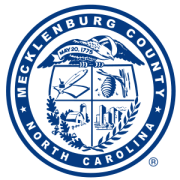How Mecklenburg County Government Grew Accessibility and Inclusion into Equality
The Declaration of Independence states that “all men are created equal.” This credo charges that all government agencies do their best to serve the varying needs of their constituents, regardless of race, gender, or ability, offering each the same quality of service. Enter Mecklenburg County, North Carolina—one of the nation’s Top 50 largest counties with 1.14M diverse residents—who’ve grown from simple ADA compliance to proactively incorporating better diversity, equity, inclusion, and accessibility into local government practices.
Advancing from physical to digital
Mecklenburg County first approached accessibility with a single goal: become ADA compliant. Yet today’s application of the Americans with Disabilities Act (ADA) extends beyond physical accommodations to buildings and facilities. So, when Sr. Assistant to the County Manager, Timmothy Tibbs, began discussing requirements, Web Services Manager, Mike Taylor, aired the need for better usability and compliance for the County’s online facilities, namely the Mecklenburg County website. Leadership agreed, making online accessibility a key component of the County’s greater Diversity, Equity, and Inclusion (DEI) initiative. But where should the team begin?
“We were starting from scratch with very little experience in accessibility. Level Access made the entire process easy to understand and manage. They helped us quickly identify our needs and break our overall goals into smaller, more manageable projects,” shared Mike Taylor.
The team began by crafting an Accessibility and Inclusion Policy, which brought County leaders from IT, geospatial systems, and other disciplines together to set standards for inclusive digital practices. This new collective awareness for accessibility empowered Taylor and teams to begin auditing current web content to assess immediate compliance risks and make incremental improvements to their SharePoint site and the documents within.
Governing to greatness
Four years later, the Mecklenburg County government is breaking new barriers! “Accessibility touches so many facets of our organization now!” says Taylor. “We’re addressing everything from policy to process, job descriptions, and remediation of our 5,000-page website.” The next goal for the Web & Communications Team is a new County website, built with inclusive design practices from the ground up. This website project allows Mecklenburg County government to publicly demonstrate their commitment to inclusion with online experiences designed considering users with disabilities.
“Compliance is no longer our only goal!” says Taylor. “Meeting Web Content Accessibility Guidelines (WCAG) is our #1 priority to ensure our new web design and platform both meet the usability needs of all users.” But meeting guidelines is only part of the process. “Testing with Level Access allows us to not only confirm compliance but verify the user experience with real people with disabilities. That’s critical to identifying usability obstacles and how our site behaves using the assistive technologies our County residents may depend on. These are the people I want and need to hear from.”
Behind the scenes, the Mecklenburg County Web team is also exploring Level Access’s Accessibility Management Platform (AMP) to monitor how 150+ unique contributors will add content to the web without compromising new usability and compliance standards. “Level Access has advised us throughout the entire journey. We are very close to meeting our goals and putting our stamp on a new County culture.”
Leading by example
As Mecklenburg County’s Web Services and Accessibility Manager, Mike Taylor personally invested in leading the charge for a more inclusive online experience. Starting as a graphic designer and marketer himself, Mike sought to learn more about this evolving discipline. Completing Knowbility courses, Level Access training, and more, Mike is now an ADA-Certified Coordinator—empowering him to better understand compliance requirements and grasp the greater usability needs of his diverse County community.
“Everyone wants to be inclusive, but deadlines and other pressures sometimes interfere with the rigor needed to create an accessible experience. We’ve engaged leadership, extended timelines, flattened teams to include an accessibility review in approval processes, and more” reflects Taylor.
A culture of service and inclusion
“Accessibility isn’t a one-and-done, single project; it takes time and commitment” concludes Taylor. Yet Mecklenburg County Government continues the noble charge ahead. “Individuals with obstacles often need our County services the most. With new legislation and Health & Human Services (HHS) programs, diversity, equity, and inclusion have become top priorities for Mecklenburg County—and our accessibility program plays a big role in that.”
Products used
-

Access Advisor
On-demand consulting and support
-

Access Academy
Online training program

